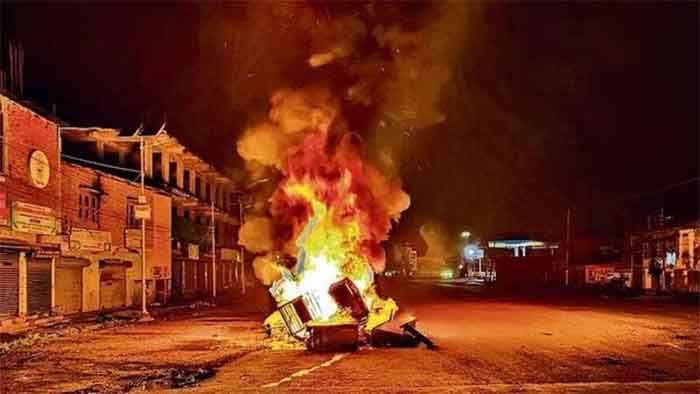-Neha Singh
May 3 was the day when the ethnic clash between the Kukis and the Meities started in Manipur and is still going on. The people from both communities who lost their near and dear ones might also not have expected or thought that the clash, which started following a rally, would see so much pain, sorrow, and anger among each other.
Some lost their homes; some fled the state; several lost their lives; and some went on to face the pain that will never be forgotten. Some stories are yet to be heard or known.
But when the clash is still going on, one thing that hits hard is the question of humanity. When people are fighting with one another in the name of a tribe, community, rights, land, job, power, and several other perspectives, have we ever asked ourselves these questions: Are you here to stay forever?, Will you take all that you have along with you when you die?
Life and death are not planned or known, but one thing that is true is that none of us are here to stay forever, and we came with nothing and we will go with nothing. But why are humans killing humans?

Everything on earth is limited, so why fight, kill, and hate each other ?
Why can’t people live a life where each of us learn to share happiness and sorrow without having any grudges or a feelings of revenge?
Living a life of peace and harmony seems like an ideal solution, but unfortunately, human nature is complex and often driven by self-interest. However, it is crucial to recognise that empathy, understanding, and compassion can lead to a more harmonious existence. By fostering these qualities within ourselves and promoting them in society, we can strive towards a world where conflicts are resolved peacefully and hatred becomes a thing of the past.
Remember, we all will die, but the way people were killed in Manipur is not how it should be.
Humanity is dead when we lose sight of our shared humanity and allow violence and injustice to prevail. It is up to each individual to revive empathy and compassion, and work towards a future where every life is valued and protected.

Although the clashes between the Meitei and Kuki-Zo tribes are not uncommon in ethnically divided Manipur, some had already predicted the scale and length of the latest riots, while others even called it a civil war.
The root cause behind this latest violence was an order that was issued in March by a local court that said the Scheduled Tribe status granted to the Kuki-Zo and Nagas should also be extended to the majority Meiteis.
The Meiteis enjoy government quotas under at least three other categories: Scheduled Caste, Other Backward Castes, and Economically Weaker Section, all of which are the Indian government’s affirmative action programmes for the historically marginalised.
Despite this, the Meiteis’ insistence on being classified as a Scheduled Tribe resulted in resistance from the Kuki-Zo and Naga tribes, triggering the ongoing violence.
In the ongoing clash more than 120 people lost their lives and over 60,000 displacements, and nearly 40,000 security forces struggling to curb violence. Manipur is perhaps going through the worst phase in its decades-long history of ethnic conflicts and militancy.
WATCH:
Find latest news from every corner of Northeast India at hubnetwork.in, your online source for breaking news, video coverage.
Also, Follow us on-
Twitter-twitter.com/nemediahub
Youtube channel- www.youtube.com/@NortheastMediaHub2020
Instagram- www.instagram.com/nemediahub





